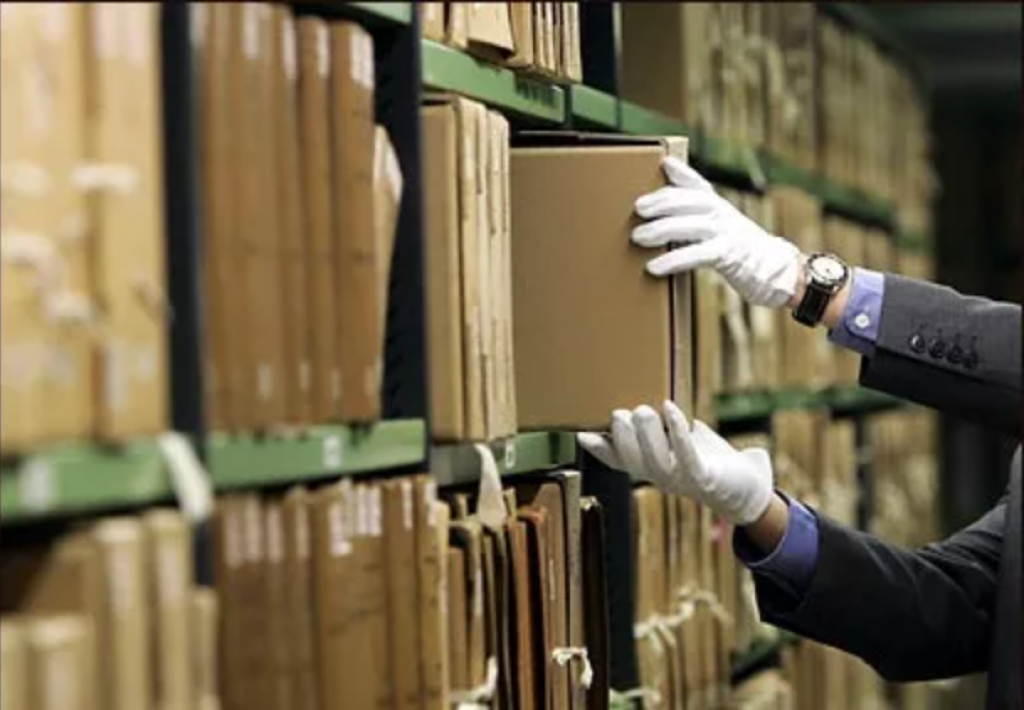The Jordan Center stands with all the people of Ukraine, Russia, and the rest of the world who oppose the Russian invasion of Ukraine. See our statement here.
Above: Logo for the Russian television channel Pervyi kanal
Graham Weaver is a second-year MA student at NYU. His current research focuses on continuities between the early Soviet period and nineteenth-century thought.
Since 2000, few media in Russian culture have undergone as radical a transformation as television. Between the increased demand for high-quality productions and the deluge of new genres imported from the West, television now occupies a unique place within the Russian media landscape, successfully catering to all levels of society. Yet despite its unmistakable cultural prominence, Russian TV series remain an understudied subject in the West, with the majority of contemporary scholarship focusing on Russian news and political programming instead. It is precisely this oversight that Russian TV Series in the Era of Transition: Genres, Technologies, Identities (Academic Studies Press, 2021) seeks to correct. Thanks to the editorial efforts of Alexander Prokhorov, Elena Prokhorova, and Rimgaila Salys, students and scholars now have access to some of the most incisive and pertinent essays on the subject to date.
As its title suggests, Russian TV Series in the Era of Transition centers on significant Russian television serials from the early 2000s to the present day. Across the collection's nine articles, readers can expect to learn about a wide variety of genres and themes, from provocative celebrity biopics to gritty neo-noirs. What lends the volume cohesion is the editors' decision to separate essays based on the period to which the shows they analyze belong. Whereas the collection's first half concentrates on series set in the past, the second half considers programs set in the present day. This structure enables readers to find thematic continuities that run throughout the volume and gain a greater appreciation for the societal tensions and anxieties that consistently make it onto Russia's smaller screens.
Those familiar with contemporary Russian culture will hardly be surprised to find several articles in the collection devoted to the problem of cultural memory. From nostalgia for the Soviet era to a fascination with Russia's imperial past, questions related to history lie at the volume's heart, proving especially effective in deconstructing the historical narratives underlying many popular shows. As Salys demonstrates in her examination of Orlova and Aleksandrov, Russian serials set in the twentieth century tend to "mythologize the Soviet past and inscribe post-Soviet establishment values through fictional interpolations" (77). By that same token, Prokhorova and Prokhorov's study of The Great and Catherine—two historical dramas about Catherine II—point to the two programs' emphasis on "conspiratorial politics" and "security services" as evidence of Putin-era tropes finding their way into depictions of the past.
The collection places equal emphasis on serials that tackle present-day issues. These studies tend to focus on shifting Russian attitudes toward gender, sexuality, and family values. In her article on the hit series The Affairs, for instance, Tatiana Mikhailova draws attention to the show's transgressive representations of female agency through an analysis of the program's female leads. Vlad Strukov, on the other hand, places queer family structures at the center of his study of Ol'ga in order to examine "the transformation of the class system in Russia under a neoliberal regime" (203). Placed side-by-side, these essays attest to the Russian television industry's sensitivity to societal change.
What distinguishes Russian TV Series in the Era of Transition from other works on Russian television is its emphasis on the industry's adaptation to global markets and trends. While this process of assimilation takes a number of forms, its consequences manifest most clearly in the popularization and Russification of Western genres. One example can be found in Iury Bykov's The Method, a series that Prokhorov, Prokhorova, and Salys argue "successfully translates post-utopian realities of contemporary Russian into global neo-noir vernacular" (166-7). Lilya Kaganovsky makes a similar case for Valery Todorovsky's The Thaw, which she describes as a quasi-Russified Mad Men replete with colorful set pieces and "recognizable nostalgic Soviet tropes" (116). Here and elsewhere, the collection situates Russian television within the global media market, noting its Western influences while paying special attention to the ways in which certain genres transform once planted in Russian soil.
Beyond the nine essays that comprise the volume, Russian TV Series in the Era of Transition also includes five interviews with notable Russian producers and scriptwriters of the past two decades. Featuring the likes of Alexander Dulerayn (The Affairs and Ol'ga), Nataliia Meshchaninova (An Ordinary Woman), and Maksim Stishov (Balzac Age), these discussions offer a valuable glimpse into behind-the-scenes politics. Whether answering logistical questions or delving into the subject's past, each interview provides crucial background that colors the preceding articles and contextualizes their analyses. While this section acts as more of an appendix than a primary component of the book, it nevertheless adds an extra dimension to the collection that nicely complements its contents.
As television and media studies continue to gain prominence in the REEES field, Russian TV Series in the Era of Transition will prove to be a foundational text. Its broad range of topics, insightful analyses, and useful supplementary materials successfully address gaps in the existing scholarship, while its accessible tone is sure to attract broad audiences among scholars and non-scholars alike.



